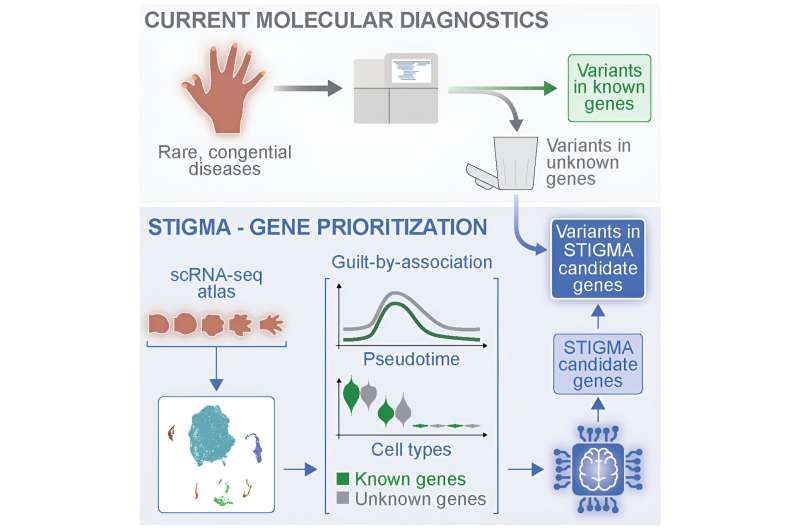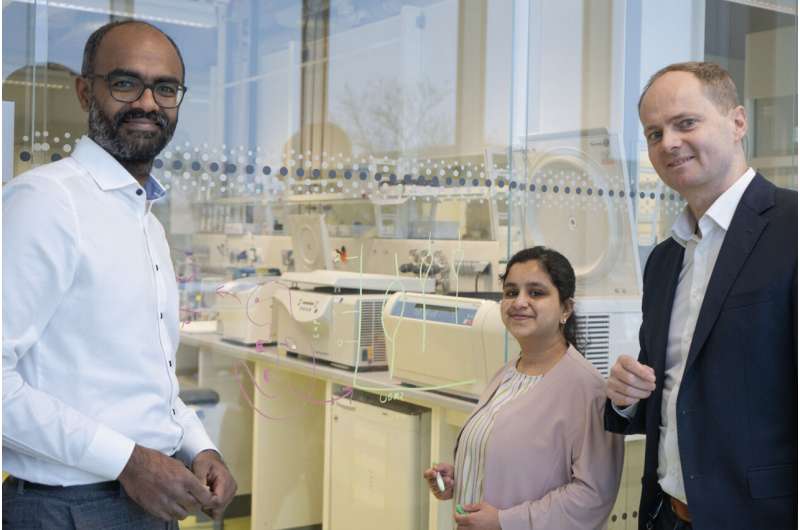This article has been reviewed according to Science X's editorial process and policies. Editors have highlighted the following attributes while ensuring the content's credibility:
fact-checked
peer-reviewed publication
proofread
AI-based algorithm enables better genetic diagnoses

A team from the Institute of Human Genetics at the University Hospital Schleswig-Holstein (UKSH), the Faculty of Medicine at Kiel University and the University of Lübeck has developed an algorithm that uses machine learning to predict whether gene variants can be responsible for certain diseases. This enables better diagnoses for rare congenital diseases.
By working with the algorithm, called STIGMA (the acronym stands for single-cell tissue-specific gene prioritization using machine learning), the researchers have already identified several new disease genes. Their findings have been published in the American Journal of Human Genetics.
The function of only about a third of the more than 21,000 human genes is known. In addition, every person carries variants in their genome, most of which are part of normal personal variability, but can also cause diseases. If a rare congenital disease is suspected, genetic analyses often reveal variants that cannot be classified. In order to find out whether they play a role in the specific case, complex experimental investigations are usually necessary.
The STIGMA algorithm compares known disease genes in embryonic development with potential new disease genes. The data on the known genes comes from (single-cell sequencing), for example, such as the Human Cell Atlas. "The algorithm can use disease genes to identify in which tissues, for example in the heart, similar genes are particularly frequently expressed, which then lead to a disease. It can predict whether a gene in which we have found a variant is responsible for a disease or is rather a normal variant that has nothing to do with it.
"This gives each gene a disease score, which we call the STIGMA score," explains Saranya Balachandran, first author and research associate at the Institute of Human Genetics. She developed the algorithm together with Dr. Varuun Sreenivasan, last author and research associate at the Institute of Human Genetics.

The new algorithm has already identified several new disease genes that lead to congenital heart defects, as well as another gene that causes malformations of the hands.
"Until now, genetic analyses have only led to a diagnosis in around 30% of patients. STIGMA can significantly improve this result. At the same time, we are expanding our knowledge of the function of individual genes—without further complex experiments, simply by using machine learning," says Prof. Dr. Malte Spielmann, Director of the Institute of Human Genetics and also last author of the publication.
More information: Saranya Balachandran et al, STIGMA: Single-cell tissue-specific gene prioritization using machine learning, The American Journal of Human Genetics (2024). DOI: 10.1016/j.ajhg.2023.12.011
















